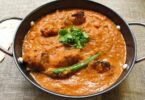Low and non-fat starches seem to cause the same addiction issue. Recent research findings from the American Journal of Clinical Nutrition shows that high glycemic foods actually alter the addictive area of brain. Specific high glycemic foods were named and include, “white bread, most white rice, bagels, parsnip, pretzels, corn flakes, glucose, maltose, and potato”.
This is important because if you are trying to lose weight and start your day with a bowl of corn flakes, it may trigger a full day of bingeing. If you try cutting fat by switching peanut butter for pretzels or pile the rice on your plate instead of taking a little extra protein or non-starchy vegetables, it is likely the wrong choice. For people who are not trying to lose weight, if you eat these addictive foods, you may be at higher risk for weight gain diabetes etc…
If starchy foods can trigger addiction, we must use this information to redefine what is considered “good” and “bad” food based on its actual effect on the body and not just because a food contains a certain nutrient. Read this, http://www.medicalnewstoday.com/articles/262603.php as it describes the results of what happens when carbohydrates are consumed. The bottom line: After eating carbohydrates, blood sugar drops and triggers addictive eating behavior.
There are those who have tapped into understanding body cues and realize that they are vulnerable to sugar addiction but this study shows, it is not just sugar, carbohydrates can be equally habit forming. There are likely more foods than the ones listed that will cause addiction. So pay attention to what happens when you eat.
The best way to know if a food triggers addiction is to be aware of how you feel after eating the food. Tell tale signs are:
1. If you are hungry within an hour or so after eating,
2. If your energy is zapped, or
3.You get a sense from your taste buds that this is R-E-A-L good and you need to go back for more.
Eating a balanced diet, means eating from each food group at each meal. Steer clear of any food that fosters the physical feelings described from the three symptoms mentioned above.
Give up on cereal with milk for breakfast or pasta as a main entree for lunch, this is carb overload and may be creating a lack of self control as the physical dependence on these foods become greater. Choose a hard-boiled egg on Alvarado Street Flax bread or a Cobb salad for lunch instead.
As science evolves and we are better able to gain more of an understanding of what happens to the food we eat once it is digested and absorbed and how food can stimulate appetite, cravings or addiction, it seems sensible to make changes accordingly. Yes, for many years we have been told the key to health is to avoid fat but now we know better.
Certain fats and certain carbohydrates should be avoided but there are foods from both food groups that should be consumed everyday. Healthy natural fats that come from any protein sources, olives, avocados, coconut, seeds and nuts are nutrient dense foods that add value to daily meals without spiking blood sugar and triggering food addiction. Non-starchy vegetables and fruits that are low in sugar or some dairy products such as, Geek yogurt or kefir are healthy sources of carbohydrates.
Take the time to identify food triggers and uncontrolled eating, you are the best judge of how food effects you.
Related articles
- New brain imaging study provides support for the notion of food addiction (sciencedaily.com)







